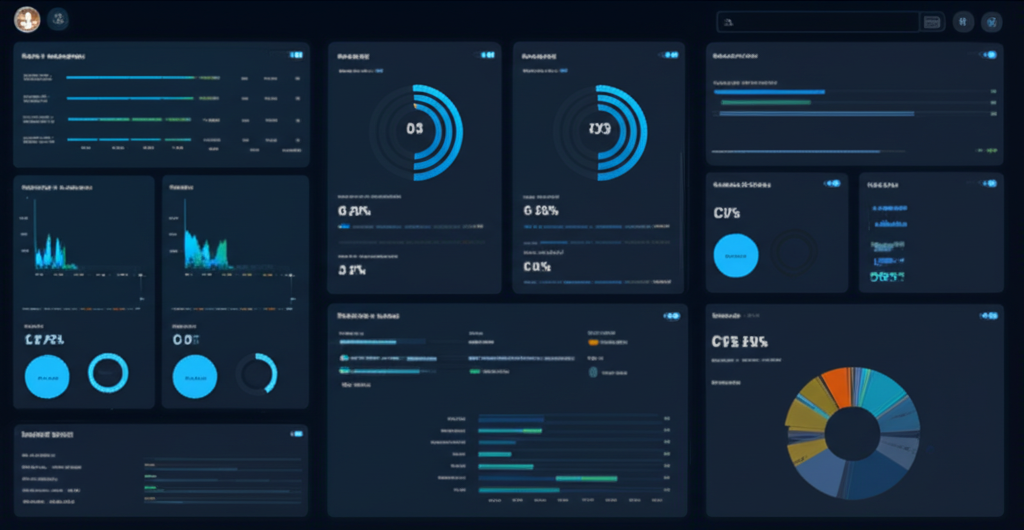Transforming Healthcare with AI-Powered Document Processing
Discover how healthcare organizations are using datakraft to automate patient record processing, reduce administrative burden, and improve care delivery.

Healthcare organizations worldwide are drowning in paperwork. From patient intake forms to insurance claims, medical records to regulatory compliance documents, the sheer volume of documentation required in modern healthcare is overwhelming administrative staff and taking valuable time away from patient care.
This is where AI-powered document processing is making a transformative impact. At datakraft, we've seen healthcare organizations reduce their document processing time by up to 90% while improving accuracy and compliance.
The Healthcare Documentation Challenge
Healthcare providers face unique challenges when it comes to document processing:
- Volume and Variety: Hospitals process thousands of documents daily, from handwritten notes to digital forms, insurance documents to lab reports.
- Accuracy Requirements: Medical documentation requires 99.9%+ accuracy - errors can literally be life-threatening.
- Compliance Mandates: HIPAA, state regulations, and insurance requirements create complex compliance requirements.
- Time Sensitivity: Patient care decisions often depend on rapid access to accurate information.
Real-World Healthcare Applications
Patient Intake and Registration
One of our hospital partners reduced patient registration time from 15 minutes to 3 minutes by automating the processing of intake forms, insurance cards, and identification documents. The system automatically extracts patient information, verifies insurance coverage, and populates electronic health records.
Insurance Claims Processing
A regional healthcare network automated their claims processing workflow, reducing processing time from 5 days to 2 hours. The system automatically extracts relevant information from medical records, matches it with treatment codes, and generates pre-populated claim forms.
Medical Records Digitization
Legacy paper records are being transformed into searchable, structured digital data. Our OCR technology can process handwritten physician notes, typed reports, and even faxed documents with remarkable accuracy.
Implementation Best Practices
Based on our experience with healthcare organizations, here are key considerations for successful implementation:
1. Start with High-Volume, Low-Risk Documents
Begin with administrative documents like appointment scheduling forms or billing inquiries before moving to clinical documentation.
2. Maintain Human Oversight
Implement review workflows for critical documents, especially those affecting patient care decisions.
3. Ensure HIPAA Compliance
All document processing must maintain strict privacy controls and audit trails. Our platform provides end-to-end encryption and detailed access logging.
4. Integration with Existing Systems
Seamless integration with Electronic Health Records (EHR) systems is crucial for adoption and workflow efficiency.
Measuring Success
Healthcare organizations typically see:
- 80-90% reduction in manual data entry
- 50-70% faster document processing times
- 95%+ accuracy in data extraction
- Significant cost savings in administrative overhead
- Improved staff satisfaction and reduced burnout
The Future of Healthcare Documentation
As AI technology continues to advance, we're seeing exciting developments in healthcare document processing:
- Predictive Analytics: Identifying patterns in patient documentation to predict health outcomes
- Real-time Processing: Instant extraction and analysis of documents as they're created
- Multi-language Support: Processing documents in multiple languages for diverse patient populations
- Voice-to-Text Integration: Converting physician dictations directly into structured data
Getting Started
If you're a healthcare organization looking to transform your document processing workflows, start with a pilot program focusing on one specific use case. Measure the impact, gather feedback from staff, and gradually expand to other areas.
The transformation of healthcare through AI-powered document processing isn't just about efficiency - it's about giving healthcare professionals more time to focus on what matters most: patient care.
Disclaimer: This article presents theoretical applications and case studies for illustrative purposes. Specific results may vary based on individual organizational needs and implementation approaches. Healthcare organizations should conduct thorough evaluations and pilot programs before full-scale deployment.
datakraft Team
Expert in AI-powered document processing and enterprise automation solutions. Passionate about helping organizations transform their document workflows through intelligent technology.


